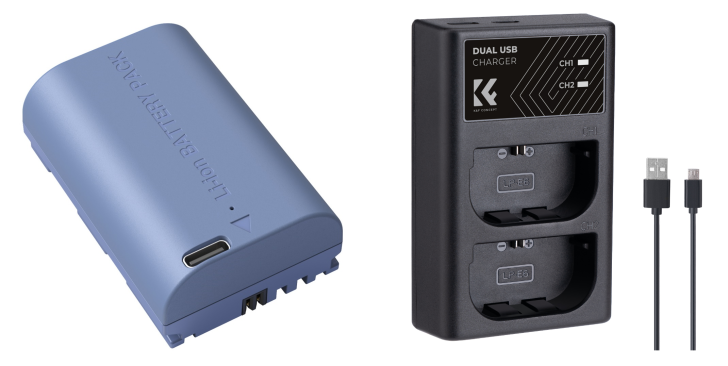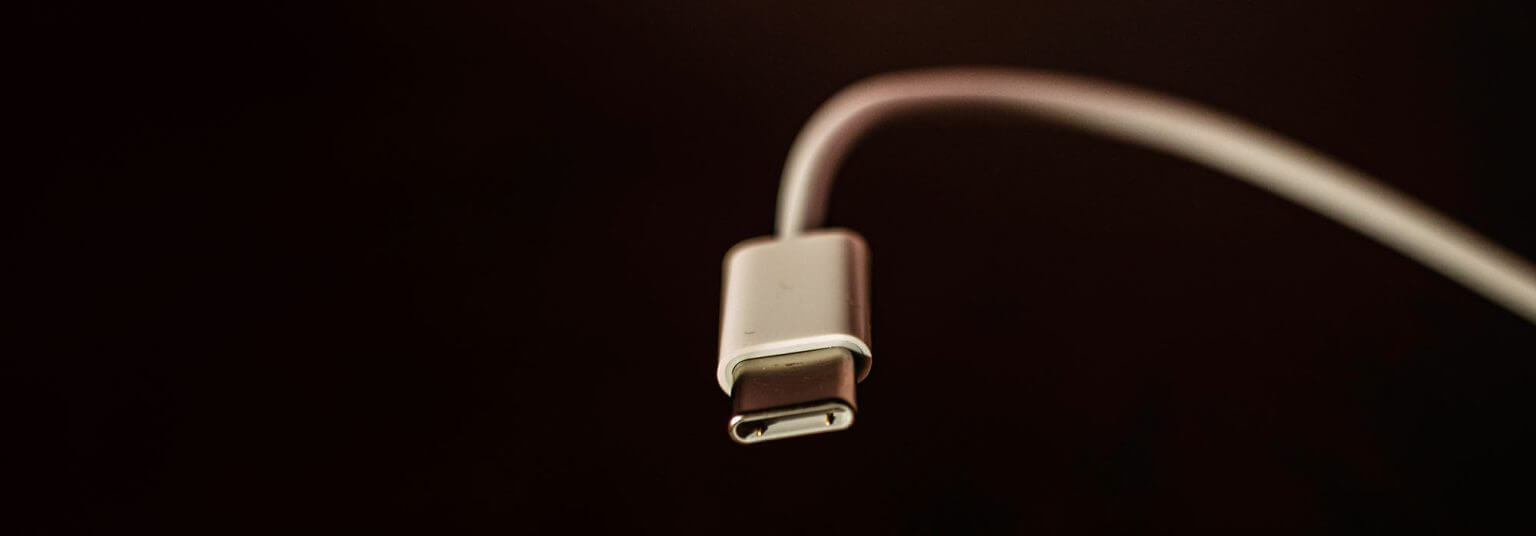I chose to put this as an opinion because I'm not a lawyer, and while my background is in engineering, we are talking about a rather convoluted subject matter. This topic can really only be answered accurately by lawyers familiar with the legislation. We won't know for sure until after December 28th, but in my opinion, there's no need to panic.
For those that aren't aware, starting on December 28th, 2023, all chargeable devices listed by the EU must use USB-C charging. This broadly includes all smartphones, tablets, cameras, and so on. Most people heard of this when Apple proudly invented the USB-C interface this past smartphone release cycle :) Just kidding about Apple, of course.
Circling around the internet is the idea that all DSLR sales will cease in Europe come December 28th, 2023, since very few of those cameras are chargeable by USB-C. This would be huge and affect both Canon and Nikon. If this applied to all cameras, Canon, I don't think had any chargeable DSLRs, and I'm not even sure there were any chargeable powershots either.
What is a chargeable device according to the EU? Well, basically any chargeable device in the categories of handheld mobile phones, tablets, digital cameras, headphones, headsets, handheld videogame consoles, portable speakers, e-readers, keyboards, mice, portable navigation systems, earbuds, and laptops with certain exceptions. Now when you see digital cameras, you are now thinking but Richard, it says digital cameras. we're in trouble! Not so fast.
We have to read the directive document and deal with the ensuing headache to get down to this snippet.
Part I
Specifications relating to charging capabilities
1. The requirements set out in points 2 and 3 of this Part shall apply to the following categories or classes of radio equipment:
2. In so far as they are capable of being recharged by means of wired charging, the categories or classes of radio equipment referred to in point 1 of this Part shall:
2.1.
be equipped with the USB Type-C receptacle, as described in the standard ►M3 EN IEC 62680-1-3:2022 ◄ ‘Universal serial bus interfaces for data and power – Part 1-3: Common components – USB Type-C® Cable and Connector Specification’, and that receptacle shall remain accessible and operational at all times;
2.2.
be capable of being charged with cables which comply with the standard ►M3 EN IEC 62680-1-3:2022 ◄ ‘Universal serial bus interfaces for data and power – Part 1-3: Common components – USB Type-C® Cable and Connector Specification’.
Now the bolded part is the important part. Older cameras aren't chargeable by wire, they simply aren't capable of it. At all. One could argue that even the battery chargers aren't chargeable by wire since they are direct to AC. The cameras are not chargeable, but the batteries are. A technicality perhaps? Certainly. But a very plausible one.
Now I could be making a lot out of nothing here, but I think this part is important, and it's important to remember the purpose of this legislation which is to ensure that all devices that are charged by a physical wire that get attached to the device are done so using USB-C.
To further stake claim that this is all a nothing burger.. In the EU directive FAQ, they mention that products on sale before harmonized standards are in place are still able to be sold.
once equipment is placed on the EU market, it can remain on the market even if the legislation changes in the meantime.
Of course, that's the FAQ and not the actual directive. It could be wrong. It should be mentioned that it's written throughout the directive that this is for products being placed in or on the market, implying it's for new products only and not for currently sold and marketed products in the EU.
If this directive were made in effect for older products already on the market, it would be a complete mess. Consider products like smartphones, Apple couldn't sell any iPhone older than the iPhone 15 in the EU market, and smartphone retailers would have to pull any older Apple or Andriod phone that didn't support USB-C off the shelves. Even worse, any and all devices that used Micro USB-B for charging would have to be pulled off store shelves, everywhere. Oh, and all this during the Christmas season too. We can all agree that governments overreach, but certainly not this badly.
As a side note, with current USB 3 specifications, some laptops can't be charged with PD, and they draw too much power (think high-end gaming laptops) – I think this legislation is far more problematic for them, but that's another subject altogether.
Let's assume that I'm Wrong™, a shocking statement, I do realize. Several things get triggered if the EU demands that a device must comply with this regulation, and that includes not only USB-C support but also packaging and identification.
The easiest method around identification is simply to pull the batteries and chargers out of the cameras, and have separate EU packaging for the battery/charger combination. Or split up the battery from the charger and sell/bundle them in discrete packages with the specific EU labeling. Also, Canon could start to use batteries such as the ones created by SmallRig; that include a USB-C port directly, or if the EU accepts it, start shipping chargers that support USB-C.

Both provide possible solutions for older cameras that don't support direct-by-wire charging.
There seem to be a lot of details in both the directive and also in follow-up faqs that older products do not have to be re-engineered. The economic burden that would be placed on companies would be unnecessary and significant. The older products will cease to exist in time, leading to a less harmful transition over time. Even if Canon and Nikon have to re-invent things for the European market, the costs would not be that significant to change packaging or change how batteries and chargers are sold in Europe.
The European DSLR market in 2022 was around 29 billion yen or around 200 million USD and over 600,000 camera bodies. Currently this year to September 2023, it's 360 thousand cameras and 100 million USD. In other words, it is a large enough market that I'm certain Canon and Nikon aren't going to simply walk away from it. Nor should they have to kill it either. In my opinion, time will kill off the DSLRs, not the EU.
Source: EU Directive 2014/53 // EU Directive FAQ // Image Credit: Mishaal Zahed on Unsplash


(Seriously, thanks for this write-up.)
One other factor to consider is that the EU directive was also intended to reduce e-waste during product upgrade cycles. Forcing manufacturers to pull their legacy products off the market, to remove non-compliant components, would have the opposite effect.
I don't recall Apple making that particular claim, but they do tend to have a very strong "reality distortion field" surrounding their announcements. To be fair, I don't believe USB would have taken off anywhere near as fast as it did without Apple standardizing on it, to the exclusion of all legacy ports, starting with the orignal iMac in 1998. The Wintel PC marketplace had always been more focused on compatibility with legacy software and peripherals, and no single Wintel manufacturer had enough market dominance to unilaterally make such a change. I'm old enough to remember the Wintel PC COM port change from 25 to 9 pins in the early 1990's, and that was painful enough with all of the incompatible pinouts and adapters.
If the EU is going to mandate USB-C PD then they should be part of the standards body.
To be fair, all consumer product "standards" seem to start as a mess, evolve as a mess and end up a mess.
But thanks for the article!
It happens all of the time.
I think in this case stores can sell what they have but they can't order any more.
I am not sure what it means for wholesalers.
It's absurd it took a multinational government to force a member of the USB-IF Board to actually use the connector that they helped force onto everyone with their USB-C only laptops. But now that we're here, we're getting the real benefit of cheap things moving off of the abomination of Micro USB. Even the cheap $5 Lume Cube clones are on USB-C with PD support now.
The new LP-E19 batteries work in the old cameras, but can only be charged in the new LC-E19 charger, which is very expensive. As the piece points out, old cameras can’t charge batteries in the camera. So someone who wants to replace a battery for their old camera with a new Canon-branded one has to also buy a new charger, with the old one becoming e-waste. I have two such chargers which will become useless to me when my last LP-E4N dies; fortunately I have an LP-E19 charger from a newer camera.
If the law means the battery must have a USB-C port, this solves the problem. If it allows Canon to stick a USB-C port on the charger and still require a new charger, it doesn’t.